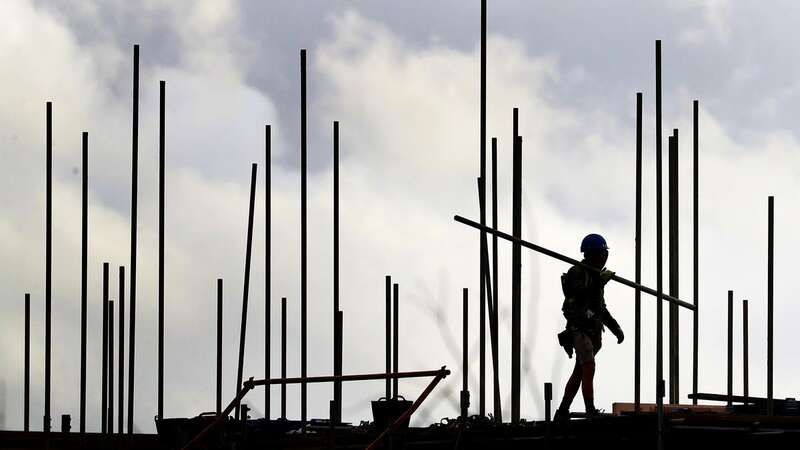
The Competition and Markets Authority (CMA), has started an investigation into eight housebuilders amid concerns these companies are sharing secret business information.
Th CMA say sharing such information could affect how many new homes are built and how much they cost. The CMA is also concerned about the quality of new homes, high and unclear estate management charges, and issues with planning. They say the housebuilding sector needs to address these issues.
Last year, the CMA began looking into the state of housebuilding and the private rental market. On Monday, they said in their final report that not enough homes are being built because of the current planning system and limitations of speculative private development.
They pointed out that there were "persistent shortfalls" in the number of homes built across England, Scotland, and Wales. Last year, fewer than 250,000 homes were built in the UK, which is less than the target of 300,000. The CMA thinks that complex and unpredictable planning ruless are part of the problem.
They also highlighted that many planning departments don't have enough resources, some don't have up-to-date local plans, and they don't have clear targets or strong incentives to deliver the numbers of homes needed in their area. The report also said that the shortfalls were due to the need to consult with a wide range of stakeholders.
 FTSE 100 plunges as inflation worries spark fresh concerns over interest rates
FTSE 100 plunges as inflation worries spark fresh concerns over interest rates
The CMA also expressed concerns about restrictions on private speculative development, pointing out that developers often build houses based on price rather than diversifying the types and numbers of homes they build to meet community needs. The study also noticed an increase in developers using estate management charges for facilities like roads, drainage, and green spaces.
These charges are "often high and unclear to homeowners", and it was noted that some unexpected charges can cost thousands of pounds. The CMA also said that builders "don't have strong incentives" for high quality and consumers have unclear routes of how to receive any redress when issues arise, with the CMA also highlighting an increase in snagging issues.
The watchdog recommended that the Government sets up a New Homes ombudsman to support homeowners over quality issues and requirements for councils to take over amenities on all new housing estates. This comes as the CMA also found evidence that some housebuilders might be sharing commercially sensitive information with their competitors, which could affect property prices and weaken competition.
The investigation will look into Barratt, Bellway, Berkeley, Bloor Homes, Persimmon, Redrow, Taylor Wimpey, and Vistry. It has not reached any conclusions about whether the law has been infringed.
CMA boss Sarah Cardell said: "Housebuilding in Great Britain needs significant intervention so that enough good-quality homes are delivered in the places that people need them. Our report, which follows a year-long study, is recommending a streamlining of the planning system and increased consumer protections."
"If implemented, we would expect to see many more homes built each year, helping make homes more affordable. The CMA has also today opened a new investigation into the suspected sharing of commercially sensitive information by housebuilders which could be influencing the build-out of sites and the prices of new homes."
"While this issue is not one of the main drivers of the problems we've highlighted in our report, it is important we tackle anti-competitive behaviour if we find it."
Shares in housebuilding companies took a hit in early trading on Monday following the announcement from the competition watchdog. This led to a drop in shares for Barratt by 1.4%, Taylor Wimpey by 1.9%, Persimmon by 1.8% and Bellway by 2%.
Read more similar news:
Comments:
comments powered by Disqus

































